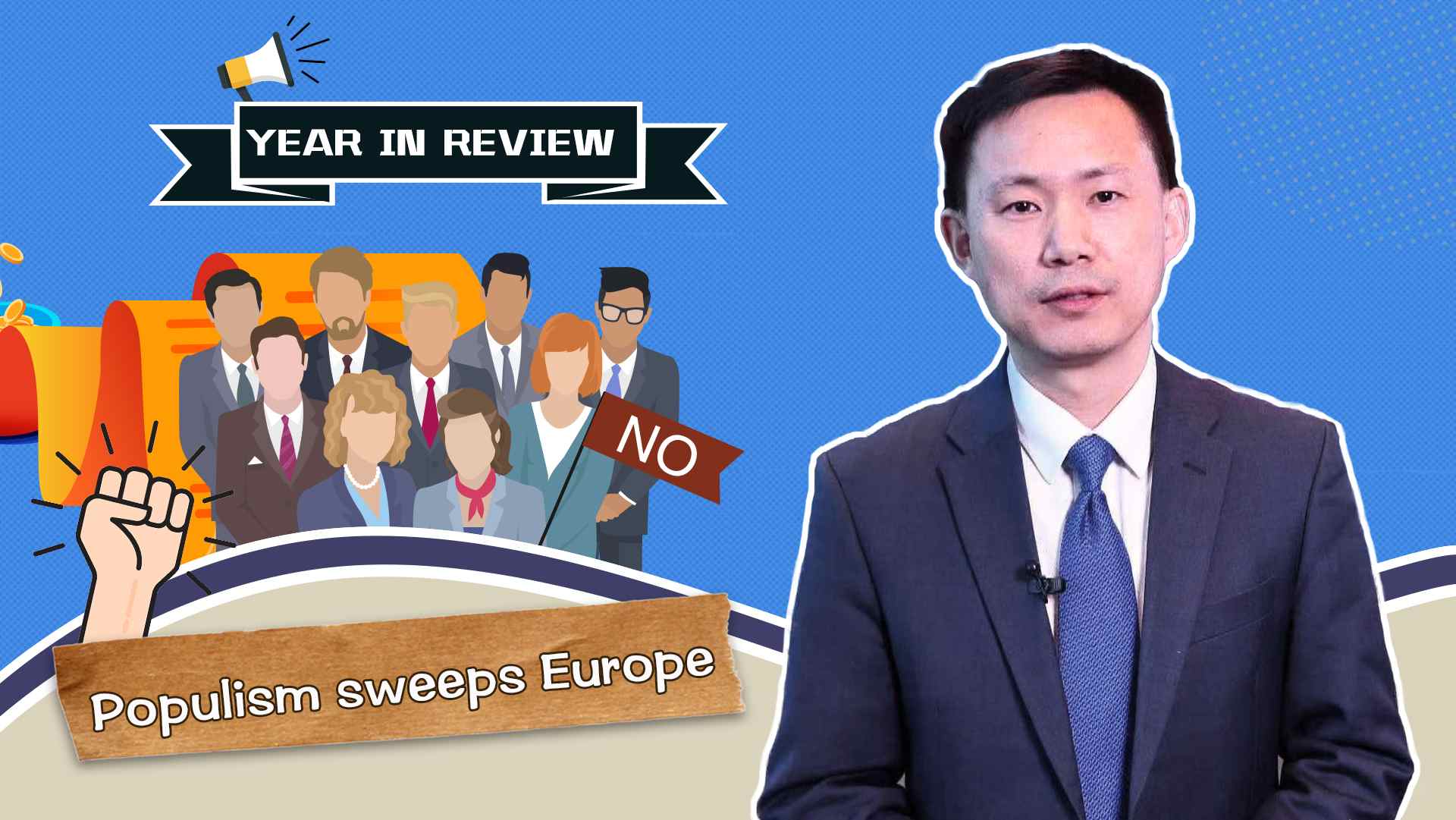
Opinions
20:50, 27-Dec-2018
Year in review: Populism sweeps Europe
Updated
20:18, 30-Dec-2018
Liu Mingli
04:27

Editor's note: 2018 was more dramatic than many other years in recent memory, and as we move into the new year, it's time to look at the major ups and downs of the past 12 months and consider how they will impact the future. Among them is the continued surge of populism in Europe. Liu Mingli, deputy director of the Institute of European Studies, China Institutes of Contemporary International Relations, shares his insights on why European populism is on the rise and where it is heading in the coming year.
There is no commonly accepted definition for “populism."
Generally, it refers to a kind of ideology based on distrust by the citizens for the elites that govern their nation.
We can also say they want the ability to rule themselves.
Populism has been rising so rapidly in recent years that every time there is an election in Europe, populist parties – many of them far-right – will successfully expand their influence.
We've seen this in France, Germany, Austria and several other places too.
It's fair to say that the rise of populism is the most important European political development in the 21st century.
European populism has some overlapping characteristics: Anti-immigrant sentiments, Euroscepticism and anger against the establishment.
The open-door policy promoted by German Chancellor Angela Merkel faced fierce criticism.
Instead of supporting European integration, the public want to regain control over national sovereignty.
Traditions are fading amid calls for new social and economic orders.
Populism became a way for people to show their concern, anger, and disappointment at the status quo.
It's widely believed that the huge influx of refugees since 2015 triggered the rise of populism in Europe.
Many blame it for the increase in terror attacks, saying the migrants are a threat to the public security.
The EU's policy on immigration and refugees is not considered acceptable and the Schengen agreement, the legal basis and symbol of free movement of people in Europe, has been questioned.
But the underlying reason behind the rise of populism is growing social inequality.
The middle class, which used to be considered a stabilizing force in society, now is shrinking.
Many of them are facing unemployment or salary reduction amid increasing living costs.
They believe that to change this, they have to change the way their country is governed.
In that sense, populism will rise with or without the refugee crisis.
However, the immigration issue has only accelerated the process. It has created challenges in European politics with the landscape increasingly fractured and more difficult to control.
There are new political uncertainties and instabilities in Europe. France is facing mass demonstrations on the streets. In Germany, Chancellor Merkel decided to step down as the leader of her Christian Democratic Union party.
Overall, integration in Europe is facing increased resistance, and this is happening on an institutional level also as the fiscal discipline of the EU is challenged by Italian populist government.
While the negative effects of populism should not be overlooked, from a positive perspective, the movement's rise may urge European countries to take the economic and social issues more seriously and begin addressing them in a legitimate manner.
And the populist parties, currently considered radical, may become moderate when they become part of the leadership.
Since the underlying problems are far from resolved, the populism trend will continue in Europe and perhaps around the world, in coming years.
2019 is an election year in the European parliament, so we don't have too long to wait before we find out what will happen during the campaign.
Scriptwriter: Liu Mingli
Animation: Ma Zhiyuan
Video photographer: Wan Bao
Edited and designed by Liu Shuo, Du Shihan, Zhao Yuanzhen, Li Linxi
Cover photo: Liu Shaozhen
Producer: Bi Jianlu
(If you want to contribute and have specific expertise, please contact us at opinions@cgtn.com.)

SITEMAP
Copyright © 2018 CGTN. Beijing ICP prepared NO.16065310-3
Copyright © 2018 CGTN. Beijing ICP prepared NO.16065310-3